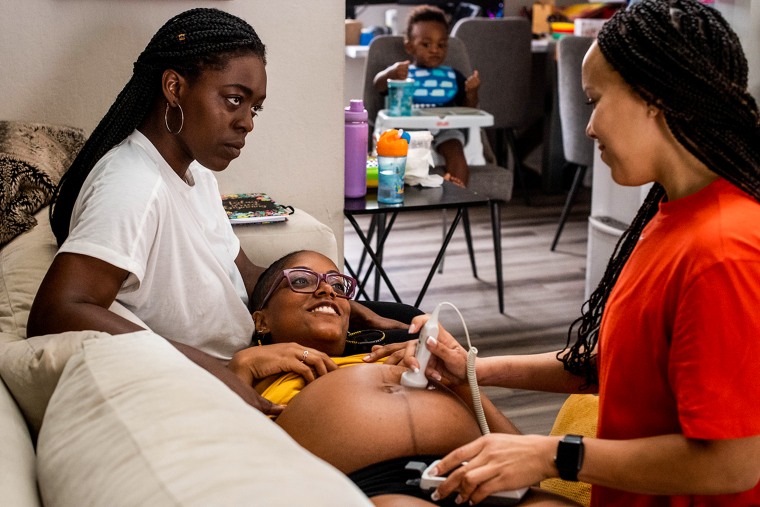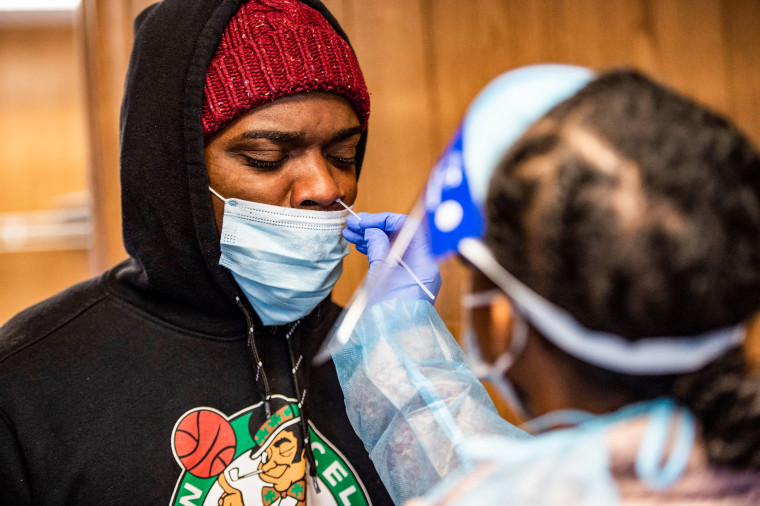The life expectancy of Black Americans has improved in recent decades, but it continues to lag behind that of white people, according to research published Monday in the journal Annals of Internal Medicine.
The study underscores the need for further examination of how structural racism, including in housing and health care, plays a role in harming the health of Black people, as well as the need for policies to address the issue, experts say.
“The interaction of race, ethnicity and geography is really profound and explains a lot of the gaps in health that we see in the United States,” said lead study author Dr. Greg Roth, an associate professor of medicine at the University of Washington School of Medicine.

In the study, Roth and his team looked at death records and U.S. census data to estimate life expectancy for white, Black and Hispanic Americans from 1990 through 2019.
They found that while life expectancy improved for each of the groups over the last three decades, Black Americans consistently had the lowest life expectancy of any of the groups.
The disparities fluctuated among states — Missouri saw the largest increase in life expectancy disparities over the time period, while Massachusetts, Connecticut and Oregon saw the largest decreases, according to the study.
What’s more, the researchers found widening disparities within the Black community, with life expectancy varying by state.
Black women in Rhode Island, for example, had a longer average life expectancy (about 87 years) than Black women in Washington, D.C., (about 76 years), according to the study. For Black men, the average life expectancy in Rhode Island was about 81 years, and about 67 years in Washington, D.C.
Roth said the disparities between the states looked as if people were “living in different countries.”
The findings mirror those from the Centers for Disease Control and Prevention’s National Center for Health Statistics, said Elizabeth Arias, a health scientist for the center who analyzes national death data. She was not involved in the new study.
Arias said Black Americans have historically had a lower life expectancy than non-Hispanic white Americans; in the 1900s, white people’s life expectancy was, on average, 14 years longer than that of Black people’s.
By 2019, she said, the country saw progress, with the gap narrowing to four years. The Covid-19 pandemic, however, has started to reverse that, with white people now living on average five years longer than Black people.

Had the pandemic not happened, it’s “very likely” that the gap in life expectancy between Black and white people would have continued to decline, she said.
Dr. Gbenga Ogedegbe, the director of the division of health and behavior at New York University’s Grossman School of Medicine, said that the U.S. can improve the life expectancy of Black Americans by making investments in housing, health care and education. He was not involved in the study.
Black Americans have historically had lower life expectancy compared to white Americans, he said, due in part to the discriminatory practices of denying services to people based on their race.
Ogedegbe mentioned redlining, a discriminatory housing policy that saw lenders refuse to issue credit to borrowers in communities of color. The practice not only impacted where Black people lived, he said, but where they could receive health care, find jobs and get an education.
At that point, “ZIP code could actually predict life expectancy,” he said.
Ogedegbe also said more physicians and health care workers have to become advocates for policies that reduce inequities in health care.
“I don’t think we’ve done a good job of training our physicians to be health care advocates for justice,” he said.
Roth, the author of the study, also called for states to adopt interventions in diet and access to education to “disrupt the cycle of poverty that we see in some communities.”
“These gaps are really large and life expectancy, when you measure it for these groups within each state, paints a really concerning picture,” he said.
Follow NBC HEALTH on Twitter & Facebook.









Recent Comments